I went to see Annette on opening night in my local theater in Glendale, California. I, my wife, and maybe three other people in the audience—clearly, all Sparks fans or hardcore Leos Carax fanatics. Covid-fear is upon us, and somehow seeing this film is almost like a home movie or our soundtrack to the disaster around us. The great thing about art is that we can project our feelings, and therefore one can have separate or subjective views of that work. Annette is very much a work rooted in theater, literature, and 20th-century exploration of the arts. The film's plot is simple enough, but the layers of meaning and textures make Annette a moving experience for me. Going to a movie theater in the age of the virus is a scary experience, and not sure if that was a wise thing to do or not brings another layer to this film. There is the idea of going to a theater and being drawn into the story or work of art. Being in the cinema with strangers made me super aware that I'm away from real life. Annette plays with the concept of being in and out of the theater as well.
I know Ron and Russell as known as Sparks for some time now. I'm also a fan of their work, and one thing I rarely do is question their work methods or thinking behind their music or presentation. There are some things I want to remain as a mystery. It is almost a hobby of mine to think about Sparks and their work. I knew they were making a film with Leos Carax, and it was going to be a musical. Knowing Carax's other films, I sort of imagined Annette being a tribute or playing off the great works of filmmaker Jacques Demy and his composer Michel Legrand. Again, I never spoke to Ron and Russell about this. I presume that this will be the case. I was wrong.
Leos Carax is one of the last filmmakers in our century that goes for the brain and heart. His work is beautifully artificial, which allows raw emotions to come into the visual sensibility of the narrative, as well as the emotional highs and, of course, lows. It is more of a presentation by The Living Theater and Bertolt Brecht writing their text to my pleasant surprise. If Demy/Legrand is a love letter to the Hollywood Musical, then "Annette" has emotional ties to Opera. What I suspect in the operatic form is extreme emotion. I was drawn into the film and felt very much part of the staged audience in the movie. The Brechtian aspect is to remind the audience that they are watching a film or play. The very beginning even points this out as Sparks is in the recording studio singing "So May We Start." Ron and Russell Mael eventually get up with the others (including the acting cast, backup singers with Leos, and daughter) and leave the studio onto Santa Monica boulevard. We see Adam Driver (Henry) and Marion Cotillard (Ann) switch costumes. Then both go their separate ways for their second entrance to the film.
Before I'm aware of an image from the film, I hear a voice from the past, and it sounds like it is coming from the deepest ocean or subconscious. I had to look it up, but it's a recording of Au Clair de la Lune (By The Light of the Moon) made on April 9, 1861, and recorded and sung by Édouard-Léon Scott de Martinville. It is the earliest recognizable record of the human voice. A French folk song, Au Clair de la Lune, came from the 18th-century, and the characters in the song are from the Commedia dell'Arte. This theatrical group started in Italy and ended up in Europe. The translated lyrics I found online: In the light of the moon, Pierrot, my friend/Loan me your pen to write something down.
The juxtaposition of the early recording and the official start of the film is an amusing introduction to what will take place in the movie. "So May We Start" is a continuation of the phrase we hear from Au Clair de la Lune. The author of the song wants to write something down, in a manner, it is very much like starting a story as "Once Upon a Time…." Also, to let the viewers know that what we are seeing is a theater piece and that there are actors and writers at work here. One can get lost in the narrative of Annette, but we are fully aware that it is a story or an illusion performed in front of us. Also, I heard two versions of this recording. One pitched higher, which sounds like a young girl is singing, and not only that, it is not too far off from the voice of the real girl Annette played by Devyn McDowell.
The artificial aspect of the film is on display again and again. In his "Ape of The God" show, Henry always comments on the grand entrance he makes and the fake smoke to present a spectacle. Still, within his act, he exposes the theatrical aspect of the show. Henry breaks down the wall between audience and performer. He has the artist's obsession (including himself and his wife Ann, the Opera Star) dying on the stage. Perhaps in a literal sense and the bombing in front of an audience, Henry talks about death on the footlights but focuses on his wife's performances where she repeatedly dies in various operatic roles. He is conflicted with the idea of 'real' death and a performative version of death. Henry wants to die or even be murdered on the stage as a death wish but loathes Ann's approach to death as a theater piece. The truth is, his career is heading toward the sewer, and Ann's stardom and talent are heading for the stars. Henry is a comedian that is somewhat between the style of Lenny Bruce and Andy Kaufman, with the added touch of humorist/songwriter Tom Lehrer. Henry quotes the Leher song "National Brotherhood Week" in his show, and he comes off as someone who wants to tell painful truths to the audience. The thing is, Henry is full of pain and doubt. Therefore, his presentation is although honest, is also not very funny. He resents his audience as much as they love him. His problem he doesn't understand why his audience loves him. In his mind, he is out to murder his fans. Not unlike the love of his life, Ann, who is a successful opera singer. She wants to bring the audience up or face emotions. Henry also has a fixation on his love's profession, and that she dies a lot on stage.
Ann wants to make an illusion because that is her art, but Henry wants to destroy the wall between the audience and the theater. He's a revolutionary artist (like Bruce and Kaufman), but his work is totally about him, and only him. Therefore the strain of doing his performance called Ape of the God is a self-reflection of his pain, doubts, and unhappiness with himself and the world. There's a novel written and published in 1930, The Apes of God by Wyndham Lewis. It is a book that satirizes the literary and art scene of London of that period. The characters are based on Gertrude Stein, James Joyce, Virginia Woolf, and The Sitwells. All significant and iconic figures in the UK/Europe at the time. Lewis was very much of a figure who was against everything at the time. He shifted back and forth on politics, but he was someone on the Right when all his contemporary artists leaned toward the Left. Lewis stood out due to his anger and his skills as a writer, painter, and publisher. Like Lewis, Henry sees himself as an outsider trying to destroy the inside world of theater and comedic arts.
Both Henry and Ann are self-absorbed artists. Once they have a child who becomes Annette, it changes the dynamic between the couple. Being married and having a child changed Henry on the surface, but he realizes his existence needs anger. When that is in doubt, his career goes, which is getting worse and worse, as Ann becomes more successful in singing and successful opera productions. Annette, their child, is symbolically a puppet. Love is there, but sometimes amour doesn't go from A directly to Z. It jumps back and forth. Still, in the landscape of a struggling comedian/performer and a much-in-demand opera artist, the practical aspects of a relationship are challenged at the very least. There is a belief that having a child cements the parents and family together. Still, it can also be a sign of insecurities running amok. Henry is a troubled soul, but one realizes that Ann too has a dark side as well. There are many scenes in Annette where Ann eats a shiny red apple. Perhaps a commentary on Walt Disney's Snow White.
Henry is confused with the idea or concept of death and therefore kills Ann on their yacht. It's disturbing, and when they sang "We Love Each Other So Much," Henry is in the back of Ann, and he has his two hands out, as in a motion to strangle her. He doesn't, and Henry romantically grabs Ann's hands. A similar scene plays out on the yacht when Ann goes outside on the deck to search out Henry, and his hand comes out, where you don't know if it's an act of violence or reaching out to someone he loves. Or both. As Oscar Wilde once pointed out: "For each man kills the thing he loves, Yet each man does not die.
Ann has a nightmare of Henry being charged by six women for sexual abuse, as well as an image of him on his motorcycle in the street heading toward her chauffeured car. She wakes up, but deep in her thoughts, she is aware of Henry's violent streak. Still, the motif of death being played out is both a projection and a fantasy. Equally important and set in characteristic overtures is Henry and Ann's home in the country/forest, as well as their swimming pool.
A few nights ago, it was a coincidence that I watched Jacques Deray's film La piscine (1969), starring Alain Delon, Romy Schneider, Maurice Ronet, and Jane Birkin. That film too has a swimming pool that is set as a character. It is similar to Annette in that a murder takes place in the swimming pool. Delon, in the film, plays a writer who is either suffering from writer's block or more likely doesn't have the talent to be a writer. And of course, Henry is a successful comedian going downward and is jealous of his wife's success. One kills his wife, and the other kills a once close friend. I do note that, but what impressed me is how the swimming pool is used in both films. Both the pools and the homes are isolated locations. Not far from a city, but still enclosed from neighbors prying eyes. The seclusion and the homes themselves are not part of Delon or Henry's world. The house in Annette belongs to Ann, and the residence belongs to the Romy Schneider character, but clearly not Delon, who is a guest in his own' home.'
The one character in Annette that seems to be the OK guy is a troubled soul as well. Not happy just being an accompanist or a pianist for Ann, he hides a strong ambition himself. For one, he loves Ann, but he lost her to Henry when they met. His position in life is to support Ann, and there is a strong possibility that he is Annette's father. We don't know if this is true or not, but even more critical, Henry believes it's true. Henry can't accept the idea that someone would love him. I don't think there is a character on the big screen which truly loathes themself as much as Henry McHenry.
As the story moves on, Henry has a dark lesion below his cheekbone that becomes larger. Unlike Pinocchio, whose nose gets larger when he lies, his facial lesion gets larger as Henry suffers. It's interesting to note that, like Annette, Pinocchio is also a puppet. The Annette puppet eventually has a scar above her right eye when Henry removes her from the yacht. There is no explanation for how she got the scar, but one's imagination can work wonders in this case. Although we don't see Henry pushing Ann over to the sea, we presume that this is the result he wanted. The disturbing aspect of this film is that Henry loves Ann, yet, he murders her or allows Ann to die. In her bed and out of the port window, Annette sees her mother floating in the sea dead. It brings up the image of a dead Shelley Winter in The Night of the Hunter. Still, I feel it's more in tune with Jean Vigo's L'Atalante. The image of the husband, arguing with his new wife, believes if he sees her under the water, he truly loves her. Henry never sees his wife again, but she does come back as a ghost to put a spell on him as revenge for the murder.
The spell is to have Annette sing, so it will be Ann in theory whenever she sings. It comes to mind that Ann does this as revenge, but she is also committing her daughter to be in pain as well. The irony is that Henry sees this as a miracle. He fully exploits his daughter and makes her into a superstar. With the help of the accompanist, I mean, the Conductor. For Annette to sing, she needs a light on her. Again, this is a commentary on the need for an artist's performance whenever the spotlight is on. The little girl (puppet) is a trained monkey in a circus. It's interesting to note that all her toys are Monkey dolls, and there is a brief scene of an ape holding Annette, which gives the idea that Henry is more ape-like than human. The Ape of God is an actual or represents an upset monkey. Henry himself is disappointed in being on stage, yet, either in a loving manner but, more likely in a cruel way, he does the same to his daughter.
I have witnessed parents who treat their children as a reflection of their ego. On the surface, they appear to be loving. Still, the truth is that they are mainly focusing on themselves. They are using Annette as a prop or an excuse to remain with each other. Annette only becomes a real little girl when confronting her Dad - Henry, at the film's end. A ghost's curse on not only Henry but also the innocent daughter. As parents, they are insanely horrid. The ending is devastating. The child is moving from being a puppet to a human being who fully understands the nature of her terrible parents.
Annette touches on human concerns such as the family structure, abandonment, and the need and ability to do art. The importance of a theatrical event is to see life from a distance and grab your attention to relating what is happening on the stage or cinema screen. Us viewers are not allowed to identify with the characters. Still, we can acknowledge the pain that they are going through. Also, in the distance, we can see better. One views the entire forest instead of that one tree. Therefore, the audience is very much part of Annette.




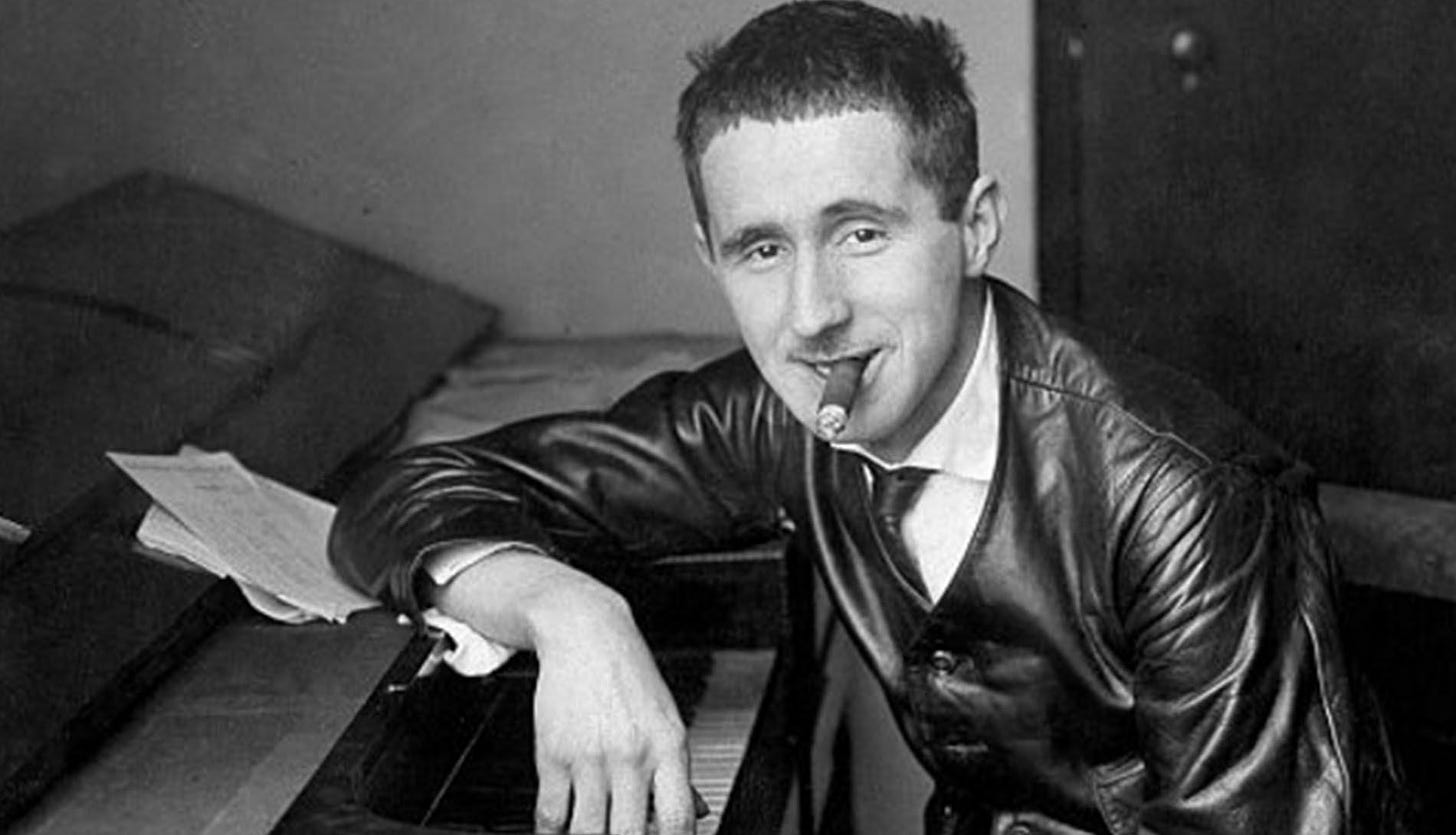
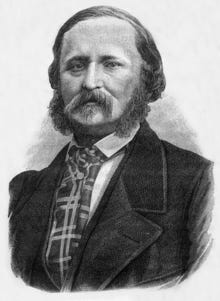

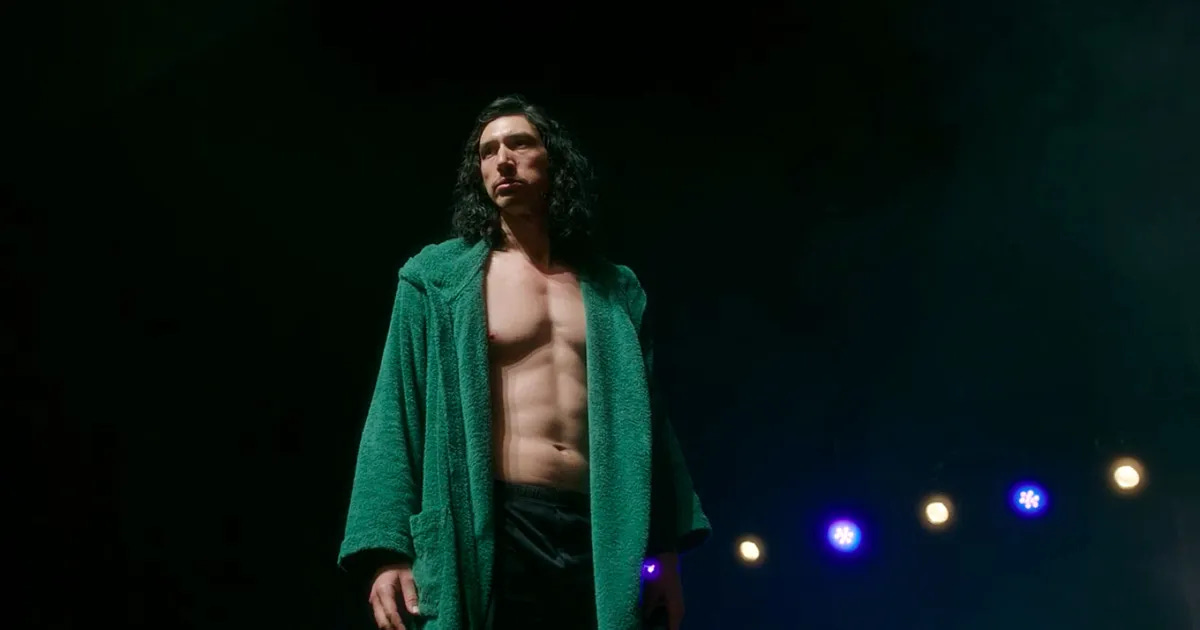
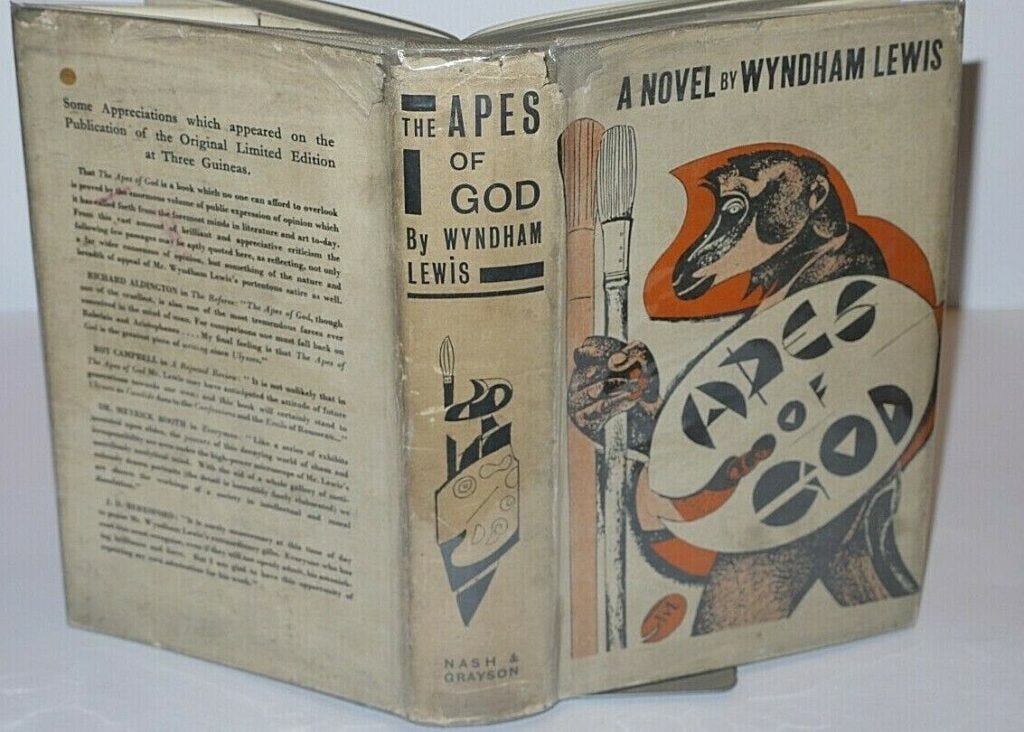
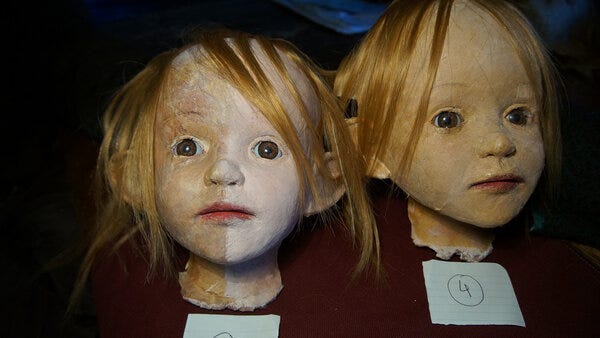
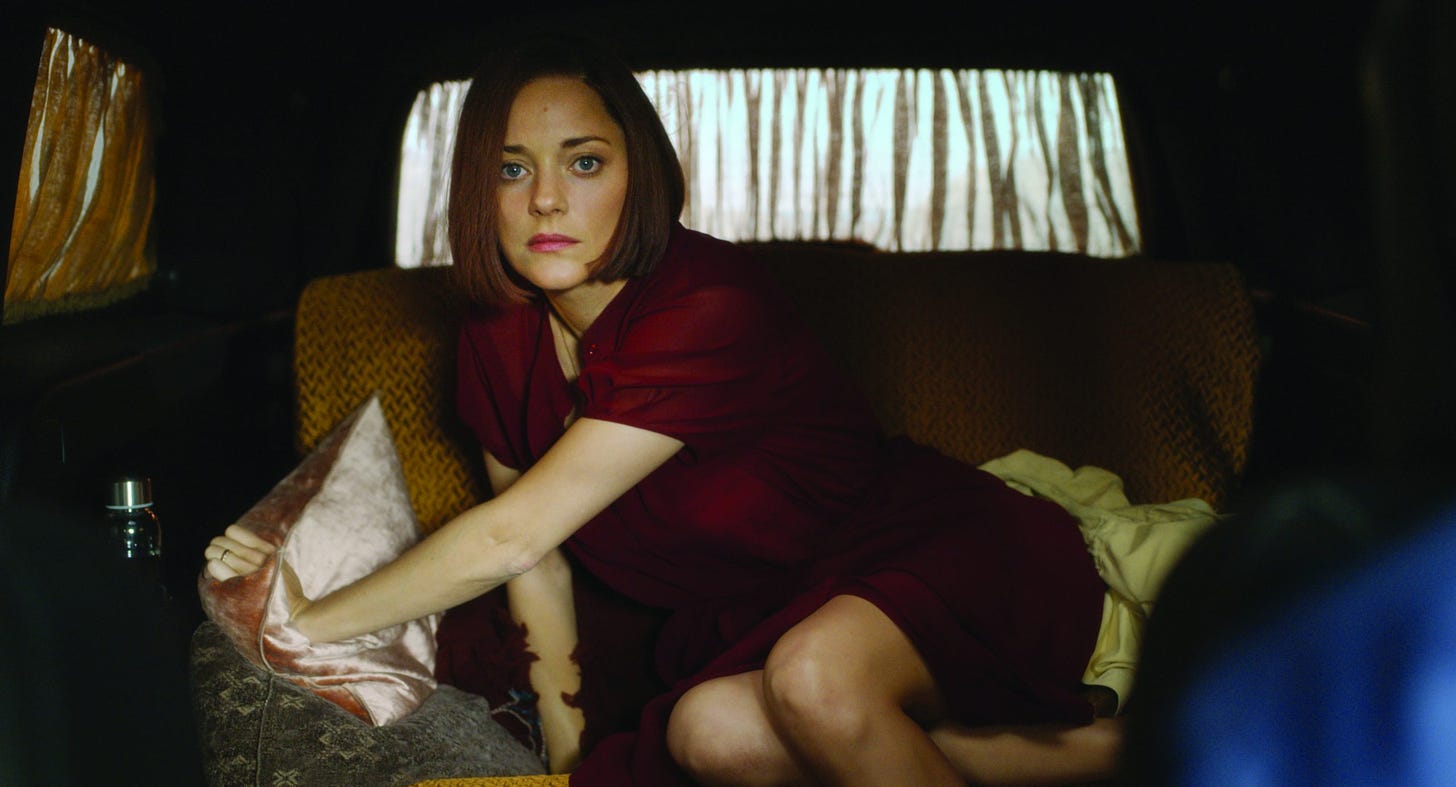
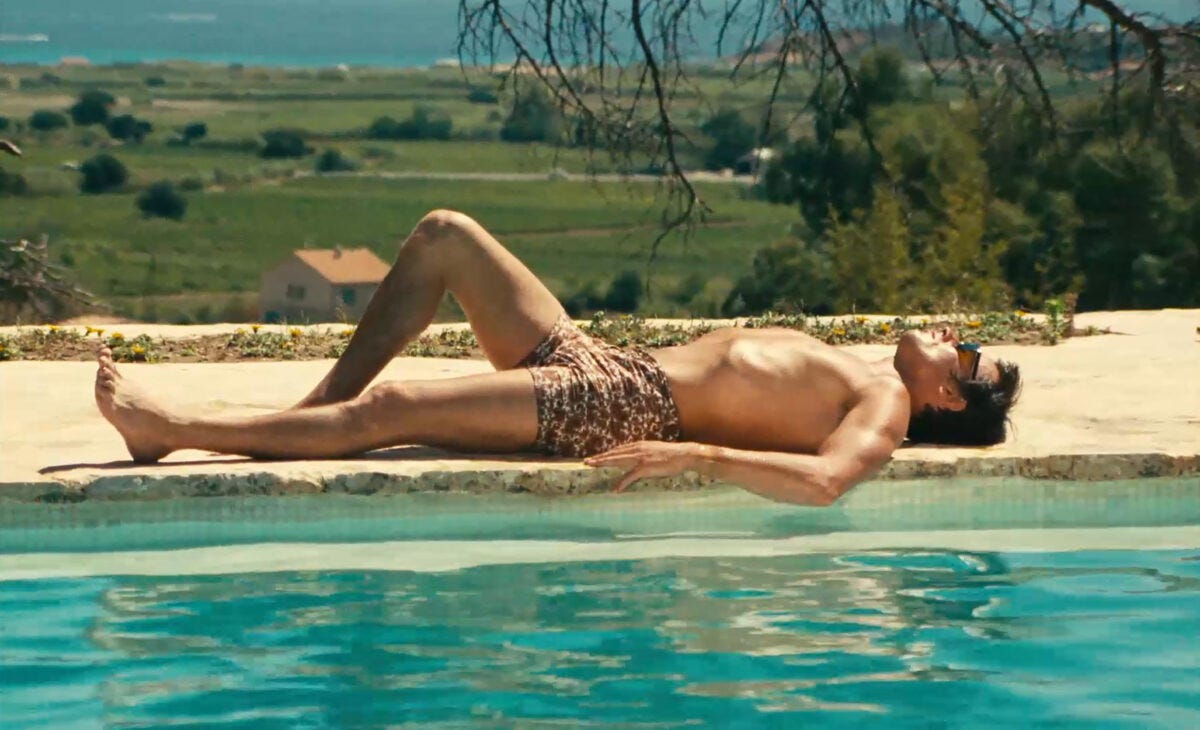
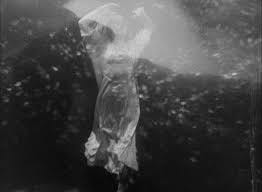
As usual, you get to the heart and soul of the art!!!
Excellent, Tosh! Now I want to go watch it again.